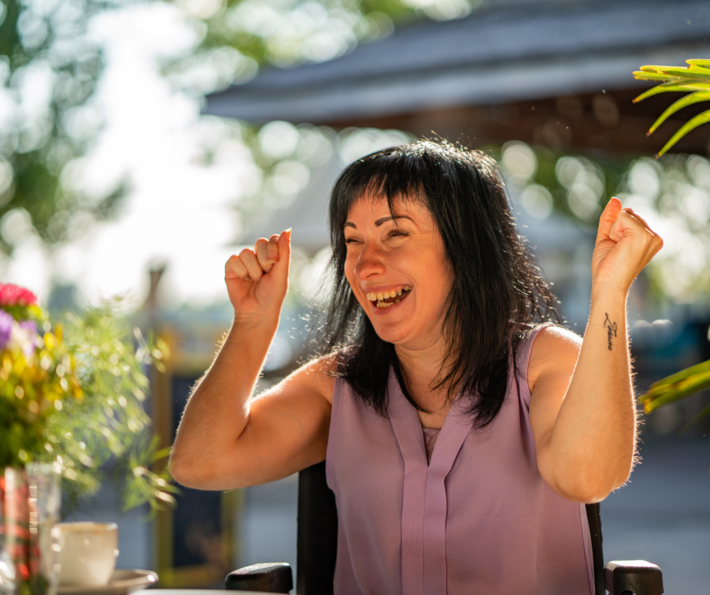

26th of August, 2024

For over 30 years, Aviva has provided life-changing group education programmes to adults and tamariki who have experienced family violence. The programmes help those affected by family violence to develop support plans; learn about acceptable behaviours and ways of expressing emotion; and experience a growing sense of safety and confidence. Participants become safer, more resilient and less likely to experience further violence.
Unfortunately, Aviva would encounter clients who wanted to participate in these groups but were unable. This could be due to a variety of reasons such as neurodivergence, physical or intellectual disabilities, traumatic brain injuries, PTSD, simply not being the right time for them, or something else entirely.
Aviva kaimahi Chelsea explains, “The groups were quite large, overwhelming, and long, 3 hours. It was quite draining. Clients were dropping out or moving into one-on-one programmes which were still beneficial but weren’t creating that sense of connection you see in a peer group. We thought to ourselves ‘We have to run this programme anyway, what can we do to modify it to make it more accessible to a larger number of people?’”
Aviva reached out to Enabling Good Lives, a Loft partner organisation that works with disabled people to offer greater choice and control over the supports they receive.
Enabling Good Lives had a reciprocal need. “We were seeing a lot of young disabled women who had experienced abuse and family violence but were not really able to find the right service or fit for their accessibility needs,” explains Enabling Good Lives worker, Neve. “So, when Aviva approached us, it was really exciting because we knew there was a huge gap in the services and knew this would be really beneficial for a lot of young people we work with.”
Aviva worked in conjunction with Enabling Good Lives to adapt its Courageous Steps family violence education programme to better fit the needs of people with disabilities.
The new pilot education programme was given the name Aoraki Rōpū.
“It comes from the biggest mountain in New Zealand because the journey to wellbeing can be a bit like climbing a mountain. And for those that have a disability, there are extra struggles that are going on in their lives that make the journey a bit tougher,” says Chelsea.
Aviva recently trialed two Aoraki Rōpū groups and is running a third group for Term 2.
The biggest difference is that the groups are smaller and shorter.
“A group is usually no more than five people. That's quite a difference from about 20 people in the room previously,” Chelsea explains. “We also reduced the time of the session to only two hours because we were seeing a lot of people coming through with hidden injuries. Strangulation is a huge thing within family harm that's often not talked about, and it causes head injuries. The time change accounts for the taxing nature of what they’re learning and ensures participants have enough breaks.”
The group also delivers information in a variety of different ways to ensure the message comes across.
“We'll talk in a circle on the couches; we’ll get up out of our seats and do some activities together; we’ll discuss the topic again through our educational videos.”
Neve was working with one woman for about 5 years before she joined Aoraki Rōpū.
“When she started the group, she wouldn't leave the house often and was really nervous to take a bus or go out. She constantly worried about her safety. Through the group and liaising with Aviva, she was able to do safety planning and get a safelet. Her confidence grew massively. Last week I spoke to her on the phone, and she asked to come by bus and meet me at The Loft. It is huge for her to feel safe and comfortable doing that. This was also one of the first groups she's finished. She's got all sorts of ideas about what she wants to do this year. She's going on to another Aviva education group, which previously she would not have been in the space or had the confidence to look at.”
Chelsea tells us about another participant on the programme.
“She had tried our mainstream group before, but it had just been overwhelming. It wasn't the right time for her. It wasn't fitting her. She came back, did Aoraki Rōpū and she completed it. She told us that she finally found her place of belonging. She'd found that connection.
“I think in family harm and disability there's so much isolation, and that's the beauty of coming together and having those shared experiences and connection in a group. Not everyone has to do the group, but the fact that groups are on offer as well as one-on-one work is really important.”
Thank you to PAC Distribution Group for providing funding for this pilot programmes.
We hope to secure further funding from a variety of sources to make Aoraki Rōpū an ongoing service for those who need it.
Learn more about Aoraki Rōpū in the video below.